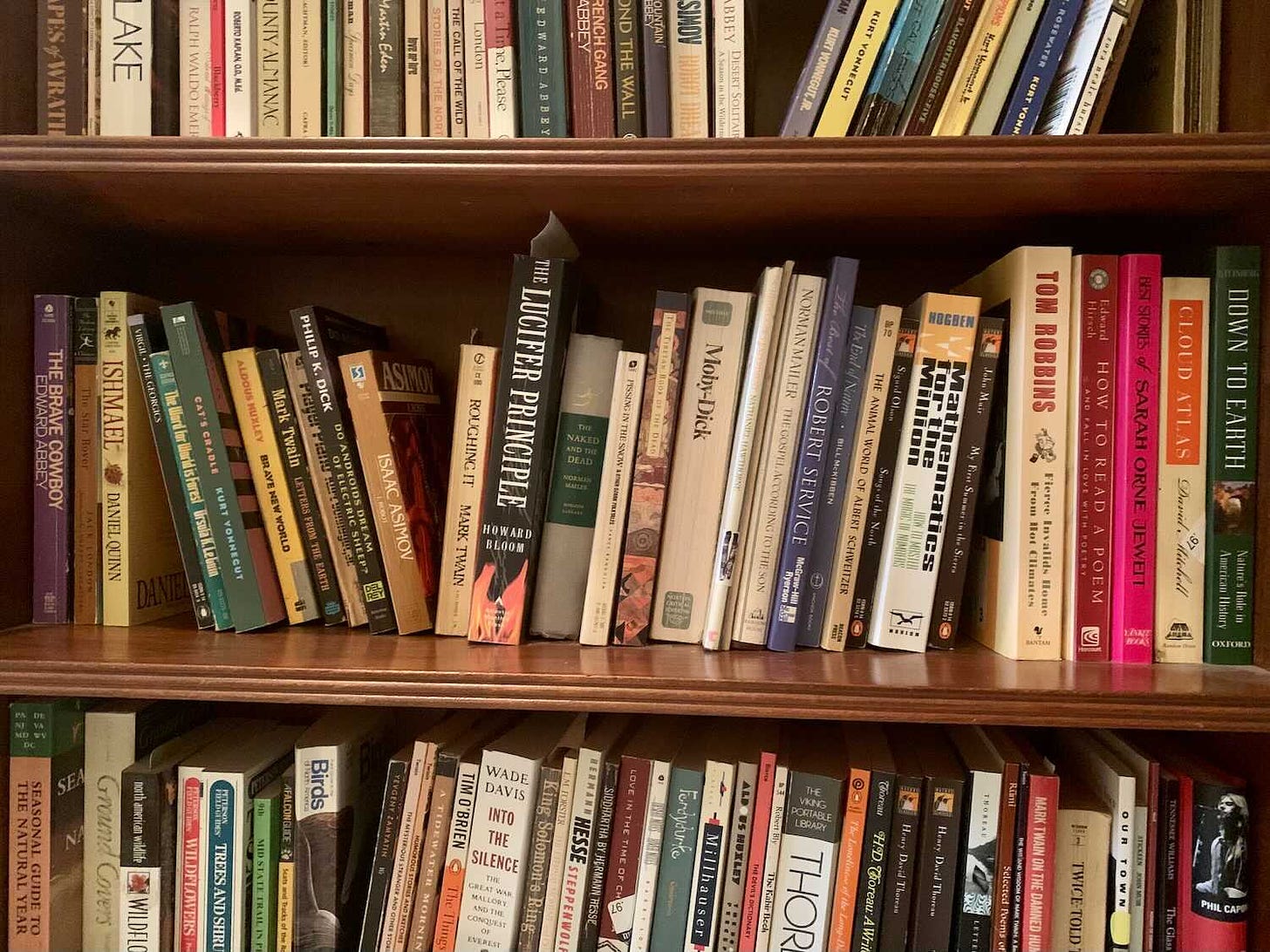A books discussion last weekend during an outing with a like-minded friend has me thinking about reading.
One of the books we talked about was Frank Herbert’s Dune (he’s re-reading it ahead of the new movie that arrives next month). Dune was the touchstone book of my youth and the proximal cause of my discovery that I wanted to be a writer.
And that leads me to some wisdom from another writer:
“If you want to be a writer, you must do two things above all others: read a lot and write a lot. … Reading is the creative center of a writer’s life.”
—Stephen King, On Writing: A Memoir of the Craft
I’ve been living that idea for a long, long time.
In the chapter that quote is from, King talks about having a book with him all the time, of learning to read in “small sips as well as in long swallows”, and he describes some of the places you can read — waiting rooms, on the treadmill, during meals, etc.
He’s describing me, the kid on the bedroom floor straining to catch enough light from the hallway to keep reading past bedtime, the teen hiding Isaac Asimov behind a textbook so he could read during class, the young soldier who made “a good book” part of his basic combat load, and the current me who can imagine no better way to spend an afternoon than with a book.
Today, my book-filled house is augmented by an entire library I carry in my pocket all the time. If you see me staring at my phone, I’m most likely reading a book on Kindle.
Or I might be reading things that King didn’t talk about, things that don’t really count as books. Some of our most thoughtful and challenging writing is happening online, and it’s worth looking for.
There’s a trend towards dismissing the internet (it’s an endless resource, but also a bottomless pit) in favor of the purity of old-school books, but that would be a mistake. I wrote about this last year in “Digital Waldenponding (and my reading strategy)” and it still makes sense to me. I’ll re-quote Venkatesh Rao on the importance of spending time with both small-mind/low-latency content (social media, etc) and great-minds/generational-latency content:
“A real adept ought to have strength-trained attention so they can spend an hour either reading a tweetstream or a once-in-a-generation history-disrupting philosophy book.”
—Venkatesh Rao, in “Against Waldenponding”
I’m reading all the time, not to fill the time between better things, but as a basic sustenance, essential to me as oxygen. I try to be both broad and deep with that reading, and I try to be wise with my selections. But I’m also working to “strength-train my attention” so that I don’t have to exclude anything.
I learn from all of it, both the good and the bad, both the small-mind stuff and the great-mind stuff, and I believe it makes me better at what I do and who I am.




